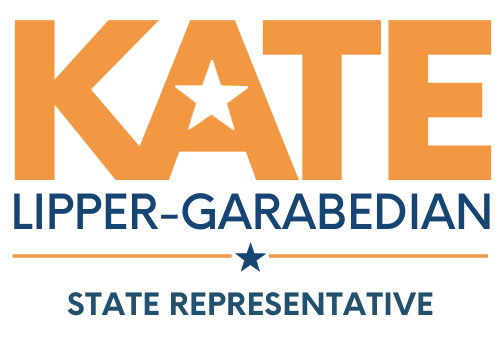Representative Lipper-Garabedian Joins the Massachusetts Legislature to Pass FY24 Supplemental Budget, Ratify Collective Bargaining Agreements and Direct Funds to Vital Services Statewide
(BOSTON—09/20/2024) On September 12, State Representative Kate Lipper-Garabedian (D-Melrose) the Massachusetts Legislature passed a supplemental budget that ratifies 38 collective bargaining agreements and directs funding to the health and human services workforce, childcare assistance programs, community services, and initiatives vital to the wellbeing of Massachusetts residents.
The legislation directs funding to deficiencies outlined by the Healey-Driscoll Administration and makes numerous clarifications to state policies to cut red tape and create efficiencies in state government.
"I was pleased to join the full Legislature in supporting this supplemental budget that provides critical funding and authorizations,” said Representative Kate Lipper-Garabedian (D-Melrose). “This supplemental budget ensures the ratification of 38 collective bargaining agreements and makes key investments in early education, the health and human services work force, and food security,”
“The funding included in this supplemental budget is critical, as it addresses a number of important issues affecting residents, invests in workforce development, and ratifies dozens of collective bargaining agreements,” said House Speaker Ronald J. Mariano (D-Quincy). “I want to thank Chairman Michlewitz and my colleagues in the House, along with our partners in the Senate, for working diligently to send this legislation to the Governor’s desk for her signature.”
“The essential funding contained in this supplemental budget will help fund important programs and approve numerous collective bargaining agreements that will help essential employees our Commonwealth relies on,” said Representative Aaron Michlewitz, Chair of the House Committee on Ways & Means (D-Boston). “I want to thank all my colleagues in the House and Senate for their commitment to getting this legislation over the finish line.”
The legislation appropriates $362 million in funding from Fiscal Year 2024 appropriations that would be made available through Fiscal Year 2025. It directs $228 million in funding for the American Rescue Plan Act Home and Community Based Services (ARPA HCBS) Reserve to promote innovative services that enhance the quality of life and independence of people in their home and community, an investment that comes at no net cost to the state.
It includes $61 million for a critical health and human services and workforce reserve to cover projected deficiencies in Fiscal Year 2024 related to the continued need for direct care staffing to respond to health needs in nursing homes, group care settings, state hospitals, and veterans’ homes, as well as other patient health and safety supports.
Additional investments include:
$29.7 million in early education and care subsidies to ensure providers can maintain access for all income-eligible families in need of childcare.
$20 million to replace lost federal funds for services to victims of crime.
$5.6 million for tax abatements for veterans, widows, blind persons and the elderly.
$5.1 million to support increased demand for the Healthy Incentives Program (HIP), which provides fresh healthy food options and supports local growers.
$2.8 million for the Elections Division of the Secretary of the Commonwealth.
$2.1 million to be used for Women, Infants and Children (WIC) nutrition services to fully support the current caseload of recipients.
The legislation includes changes and clarifications to policy, including:
Permitting the Operational Services Division (OSD) to procure both electric vehicles and charging equipment on one contract, an efficiency that will help the state reach its climate goals.
Increasing the amount that the Division of Capital Asset Management and Maintenance (DCAMM) can contract with utility vendors for energy conservation projects from $300,000 to $500,000, enhancing the division’s ability to support the state in reaching its climate goals.
Adding tribal governments as eligible entities to receive funding through the broadband municipal grant program.
Providing flexibility on the use of ARPA funds for local boards of health.
Allowing the Department of Conservation and Recreation (DCR) to enter new long-term leases of up to 30 years for the operations of ice rinks.
The bill was signed into law by Governor Healey on September 19.
###
